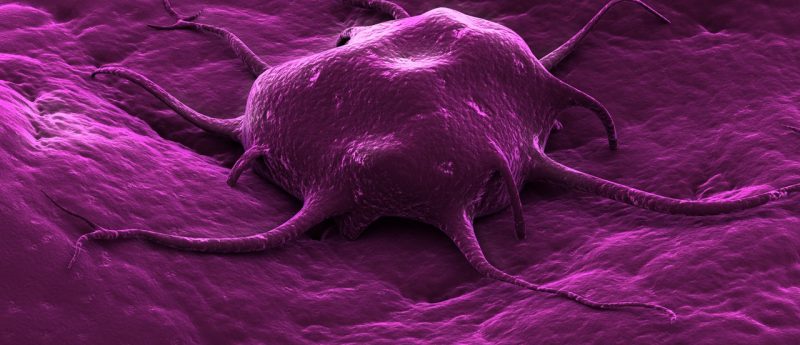New scaffold-integrated microchip for in vitro tumor cell attachment and xenograft formation

Researchers from Massachusetts General Hospital (MA, USA), Florida State University (FL,USA), and University of Massachusetts (MA, USA) have developed a microchip that can retrieve microfluidically attached cancer cells for serial in vitro or in vivo analysis. This is achieved by integrating a 3D hydrogel scaffold into a fluidic device. Results of the study were recently published in the journal TECHNOLOGY.
Circulating tumor cells are precursor metastatic cells that are responsible for 90% of cancer-associated deaths. Microfluidic devices make it possible to capture rare circulating tumor cells from patient blood samples. An association between the number of circulating tumor cells and patient outcomes has been demonstrated in clinical studies, presenting a new measure that could improve the diagnosis and prognosis of cancers.
Circulating tumor cells also offer a unique opportunity to understand a patient’s tumor status and to develop personalized therapies. However, it is often hard to retrieve microfluidic captured tumor cells from devices without causing significant disruption to the cell’s physiological state for downstream functional characterization that requires in vivo xenograft formation or ex vivo expansion.
The researchers have identified an effective strategy to integrate a 3D hydrogel substrate into a microfluidic device that can be retrieved after the capture of tumor cells. They utilized an intrinsic property of hydrogels to undergo substantial and reversible volume change between hydrated and dehydrated states. A dry hydrogel scaffold was inserted into a capture chamber within a fluidic device and then rehydrated to fill the void volume of the capture chamber.
In order to verify that cancer cells would attach to the hydrogel matrix, a cell suspension containing a prostate tumor cell line was utilized. The cell–scaffold scaffold substrate was removed from the device and cancer cells were found to be viable for in vitro growth promotion assays. In addition the tumor-scaffold was implanted to immunodeficient mice and companion xenograft models were made.
“With improvements in specificity of capture and throughput of the microchip, we hope to test a next-generation device on patient samples and verify the clinical relevance of this approach,” commented one of the authors of the study, Jungwoo Lee, from the University of Massachusetts Amherst (MA, USA).
“Companion models of circulating tumor cells can be a practical testbed to gain insight about new mutations and drug sensitivity of metastatic cells that can apply to patient care. This proof of concept study adds a new dimension to this important effort,” added principle investigator for the study Biju Parekkadan, from Massachusetts General Hospital.
Sources: Lee J, Kohl N, Shanbhang S, Parekkadan B. Scaffold-integrated microchips for end-to-end in vitro tumor cell attachment and xenograft formation. TECHNOLOGY doi: 10.1142/S2339547815500065 (2015); Scaffold-integrated microchips for end-to-end in vitro tumor cell attachment and xenograft formation.




